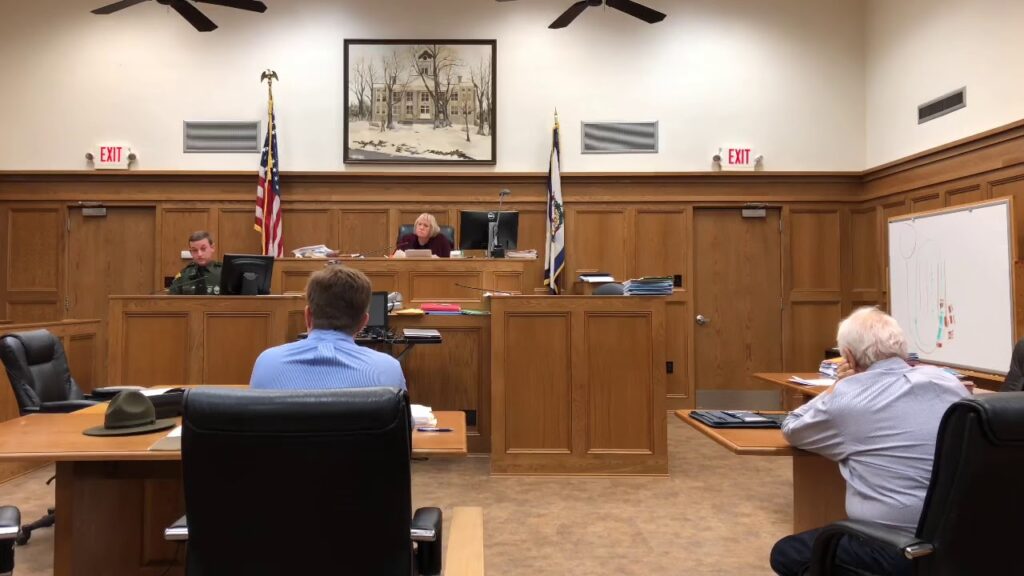Should you waive your preliminary hearing in a felony criminal case in New Mexico?
My topline answer is: no, often it is in your best interest to have the hearing unless you can give a good reason not to because it is your right and these hearings can provide substantial information for your lawyer and you going forward.
When facing criminal charges, defendants often receive advice to simply waive their preliminary hearing and move directly to plea negotiations. This approach may seem practical—avoiding the time, expense, and potential embarrassment of a public hearing. The attorney may argue that it’s hard to win a prelim because they are often rubber stamped by the judges. However, at Max Pines Law, we believe this decision to simply waive should never be made lightly and without close analysis. The preliminary hearing is one of your most valuable tools in criminal defense and waiving it can be a costly mistake that eliminates crucial opportunities to strengthen your case. You need a reason to waive the hearing.
Understanding What You’re Giving Up
The preliminary hearing serves as your first real opportunity to challenge the prosecution’s case. Unlike a trial where guilt must be proven beyond a reasonable doubt, the prosecution only needs to establish probable cause—a much lower standard. Despite this lower burden, preliminary hearings offer several critical advantages that disappear the moment you waive them.
Testing the Waters with Low-Level Charges
For defendants facing lower-level charges, the preliminary hearing serves as an important litmus test. Will the arresting officers actually show up to testify? Has the district attorney’s office put together a coherent case, or are they simply hoping you’ll fold without a fight? These questions matter more than you might think. In many jurisdictions, law enforcement agencies are stretched thin, and prosecutors’ offices handle enormous caseloads. A preliminary hearing forces them to prioritize your case and demonstrate they have their ducks in a row.
Consider a scenario involving minor drug possession or a low-level theft charge. If officers fail to appear or provide inconsistent testimony, you may find yourself in a position to negotiate a significantly better plea deal—or even see charges dismissed entirely. The preliminary hearing essentially calls the prosecution’s bluff, forcing them to show at least some of their cards early in the process.
Sometimes it takes considerable thought and planning for the DA to determine which witnesses to call for the prelim. If they are busy, they may make and error. This error is only uncovered if you have your hearing.
The Misdemeanor Plea Calculus
One of the most compelling reasons to waive a preliminary hearing relates to misdemeanor plea negotiations or pre-prosecution diversion programs (PPD). In this case, the DA is giving you a reason to waive the prelim: that you get a good deal.
Alternatively another good deal might be an agreement to bind over on lesser charges. This reduction in maximum possible penalty may be worth the waiver.
But even having the prelim itself can serve you in plea negotiations. The preliminary hearing allows your attorney to identify weaknesses in the prosecution’s case that can be presented to the DA as reason to deal favorably. Perhaps the chain of custody for physical evidence is questionable, or key witnesses provide contradictory accounts under cross-examination. These vulnerabilities become powerful bargaining chips when discussing potential misdemeanor pleas. Prosecutors often make their best plea offers after seeing how their case performs at the preliminary hearing. If their witnesses stumble under cross-examination or key evidence proves problematic, they may be far more willing to offer favorable terms than if they never had to test their case at all.
The Felony Degree Question: Is Binding Over Worth It?
For more serious felonies, the calculus becomes even more complex. Consider whether it’s strategically advantageous to be bound over on a third-degree felony rather than a more serious second-degree charge. While this might seem like a distinction without a difference, felony degrees carry vastly different potential sentences and long-term consequences.
During the preliminary hearing, your attorney can challenge the specific elements that elevate a charge from third-degree to second-degree status. For instance, in cases involving theft, burglary, or assault, the degree of the felony often depends on factors like the value of property involved, the presence of weapons, or the extent of injuries sustained. If the prosecution struggles to prove these aggravating elements at the preliminary hearing, you might successfully get bound over on the lesser charge.
This strategy requires careful consideration of your specific circumstances. In some cases, accepting a binding over on a reduced felony degree is preferable to risking a trial on the original charges. The preliminary hearing provides the opportunity to test the prosecution’s evidence for these aggravating factors without the full consequences of a trial.
The Value of Locked-In Testimony
One of the most underappreciated benefits of the preliminary hearing is the opportunity to lock witnesses into specific testimony that can later be used for impeachment. Officers, victims, and other witnesses who testify at the preliminary hearing create a permanent record of their statements under oath.
This testimony becomes invaluable if the case proceeds to trial and witnesses attempt to change their stories. Your attorney can use preliminary hearing transcripts to confront witnesses with their prior statements, potentially devastating their credibility. This impeachment material is often the difference between conviction and acquittal in cases that hinge on witness testimony.
Additionally, the preliminary hearing allows your attorney to assess witness demeanor and credibility in a lower-stakes environment. How do they handle cross-examination? Do they appear nervous, evasive, or uncertain? These observations inform trial strategy and plea negotiations in ways that can’t be replicated through written reports or depositions.
Comparing Preliminary Hearings to Pretrial Interviews
Some defendants and their attorneys prefer to rely on pretrial witness interviews rather than holding preliminary hearings. While pretrial interviews can provide valuable information and are indeed crucial to an effective defense in New Mexico, they lack the coercive power of sworn testimony under oath.
Preliminary hearings occur in a formal courtroom setting where witnesses are subject to the same rules of evidence and procedure that will govern trial. While having a judge limit the scope of their answers does limit the investigative power of the prelim cross exam, this venue does provide a more accurate preview of how witnesses will perform under the pressure of formal proceedings.
I will conceded that our unique rule in New Mexico that allows us to take pre-trial interviews of any prosecution witness does lessen the necessity of taking a full preliminary hearing because you know you can get that PTI later on in the case. However, my default, as I have argued above, is that the prosecution or the circumstances should give you a reason why a prelim is not the best course. Exercising that right should be the default.
When Waiving Might Make Sense
Despite these advantages, there are limited circumstances where waiving the preliminary hearing might be strategically sound. These situations typically involve:
- Preventing Additional Charges: If there’s concern that the preliminary hearing might expose you to additional evidence that could result in enhanced charges or new counts being filed through dangerous potential testimony.
- Protecting Witnesses: In cases involving sensitive witnesses or allegations, public testimony might cause more harm than good to your defense strategy. If you think a witness may soften in the future, maybe you don’t want to strike while the iron is hot, so to speak, and calcify that negative testimony.
- Negotiated Agreements: When the prosecution offers a genuinely favorable plea agreement contingent upon waiving the hearing, and your attorney has sufficient information to properly evaluate the offer.
- Publicity Concerns: In high-profile cases where preliminary hearing testimony might generate negative publicity that could taint potential jurors.
Making the Right Decision for Your Case
The decision to waive or hold a preliminary hearing should never be made without careful consultation with experienced criminal defense counsel. At Max Pines Law, we evaluate each case individually, considering factors such as:
- The strength of the prosecution’s evidence
- The credibility and availability of key witnesses
- Potential plea negotiation opportunities
- The specific elements required for each charged offense
- Your personal circumstances and risk tolerance
The Bottom Line
Your preliminary hearing is not just a procedural hurdle—it’s a strategic opportunity that should not be discarded lightly. Whether you’re facing minor charges where the prosecution’s commitment is questionable, or serious felonies where the degree of the offense matters significantly, the preliminary hearing provides unique advantages that cannot be replicated later in the process.
The decision ultimately depends on your specific circumstances, but the default position should be to exercise this important right unless there are compelling strategic reasons to waive it. Don’t let the prosecution coast to an easy victory without making them prove their case can withstand even the preliminary scrutiny of a probable cause hearing.
At Max Pines Law, we believe in using every available tool to protect our clients’ interests. The preliminary hearing is one of the most powerful tools in the criminal defense arsenal—make sure you understand what you’re giving up before you decide to waive it.






